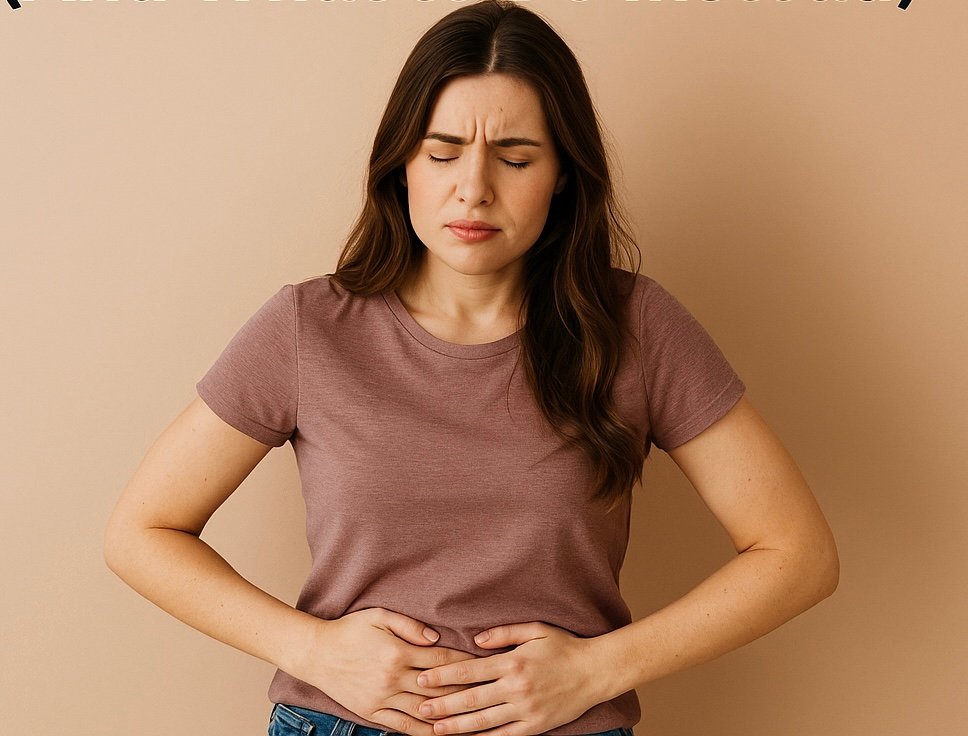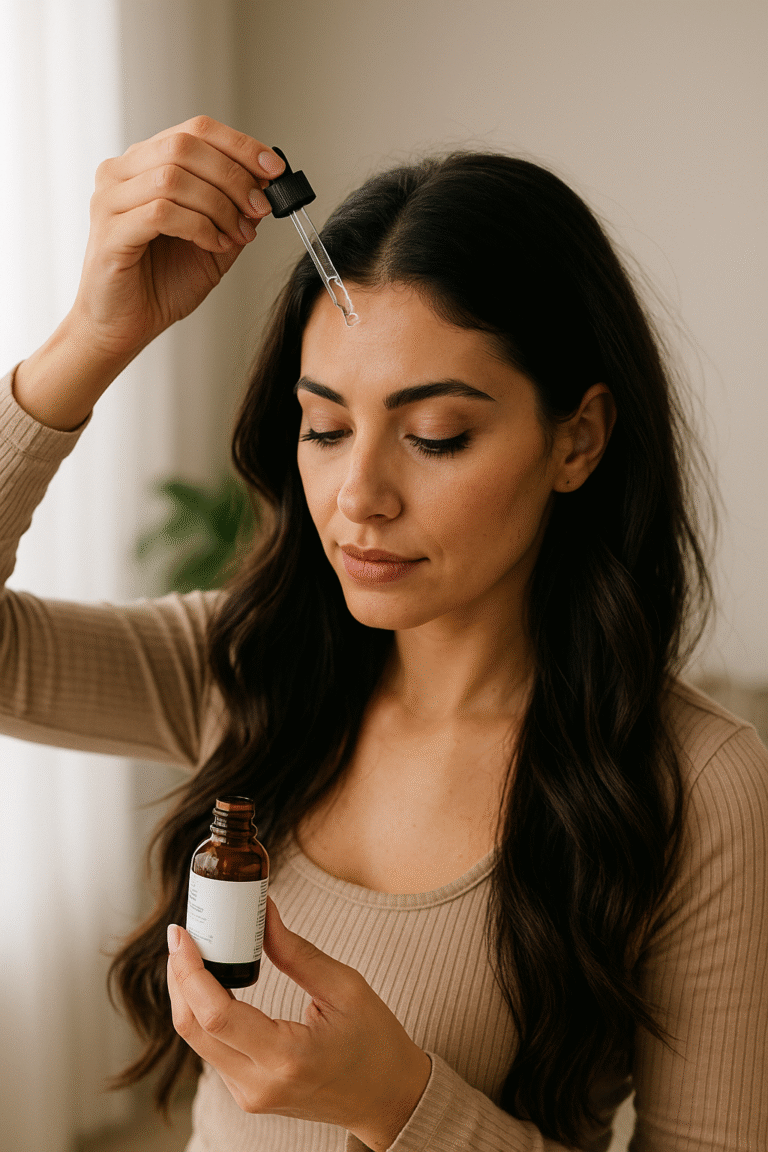Bloating is something most women know all too well — that uncomfortable, swollen feeling that seems to strike without warning. Whether it’s post-lunch puffiness, period-related pressure, or an end-of-day belly bulge, it’s a frustrating and often embarrassing experience. You’re not alone, and more importantly, you don’t have to live with it.
In this guide, we’ll explore the most common — and surprising — causes of bloating in women and share real, effective solutions to help you beat the bloat fast. From cycle syncing to gut-friendly foods, here’s your roadmap to reclaiming a flatter, more comfortable belly.

Affiliate Disclaimer: This post contains affiliate links. I may earn a small commission if you buy through them—at no extra cost to you. Thanks for supporting this blog!
Introduction: Why Women Struggle with Bloating
The Silent Epidemic: Why It’s More Common Than You Think
Bloating affects over 75% of women at some point in their lives. While it might seem like just a digestive hiccup, it’s often tied to hormones, stress, gut health, or even your lifestyle habits. Many women quietly Google “how to stop bloating fast female” in search of instant relief — but addressing the root causes can lead to lasting change.
Why Women Feel Ashamed to Talk About Bloating
Because bloating is often seen as a “cosmetic” issue, many women feel like they’re overreacting. The truth? It’s a legitimate sign that something in your body needs attention. Just like skin health or period care, bloating deserves open, honest discussion.
Understanding the Root Causes of Bloating in Women
Hormonal Fluctuations and Their Digestive Effects
During your menstrual cycle, rising and falling levels of estrogen and progesterone can slow digestion, cause water retention, and relax your gut muscles — making bloating worse.
How Your Gut Microbiome Impacts Bloating
Your gut is home to trillions of bacteria that play a critical role in digestion. An imbalance can lead to gas buildup, slower motility, and chronic bloating.
Stress and Its Sneaky Role in Bloating
When you’re stressed, your brain triggers a “fight-or-flight” response. This diverts energy away from digestion, slows gut movement, and increases inflammation — all of which can cause that tight, swollen belly.
How to Stop Bloating Fast Female: Quick Fixes that Actually Work
If you’re looking for fast relief, try these research-backed strategies:
- Peppermint tea or capsules: Peppermint helps relax the intestinal muscles and ease gas.
- Gentle post-meal walking: A 10-minute walk after eating can aid digestion and reduce bloat. Check this Walking pad Treadmill
- Abdominal massage: Gently massaging in a clockwise motion can stimulate digestion.
These tactics aren’t just myths — they’ve been shown to work when used consistently, especially during the luteal or PMS phase.
Bloating and Hormones: What’s the Connection?
Why Your Period Makes You Feel Puffed Up
As progesterone rises after ovulation, digestion slows down. Combine that with estrogen dips and you’ve got water retention, gas buildup, and a bloated belly.
Estrogen vs. Progesterone: The Hormonal Bloat Battle
High estrogen can cause water retention; low progesterone slows digestion. The balance (or imbalance) of these two hormones plays a big role in how bloated you feel.
Managing PMS-Related Bloating Naturally
- Focus on potassium-rich foods like bananas and sweet potatoes.
- Limit salt and caffeine in your PMS week.
- Try magnesium supplements (200–400mg) to reduce water retention.
Cycle Syncing: A Game-Changer for Gut and Hormonal Health
What Is Cycle Syncing and How It Helps
Cycle syncing means adjusting your diet, workouts, and habits based on your menstrual phase. This can dramatically reduce bloating and other hormonal symptoms.
Foods to Eat (and Avoid) Based on Your Menstrual Phase
- Follicular phase: Light, fresh meals like salads and lean protein.
- Luteal phase: Warm, cooked meals with fiber and low-FODMAP carbs.
- Menstrual phase: Iron-rich foods and hydration.
Supplement Timing for Hormonal Balance
Taking magnesium, B6, and omega-3s in your luteal phase can support hormonal shifts and ease bloat.
Foods That Trigger Bloating You Might Be Eating Daily
You might be surprised by these sneaky culprits:
- Cruciferous veggies (like broccoli and cauliflower): High in raffinose, a gas-producing sugar.
- Carbonated drinks: Add literal gas to your gut.
- Dairy and gluten: Can cause bloating if you’re intolerant or sensitive.
Dairy, Gluten, and FODMAPs Explained
FODMAPs are a group of fermentable carbs that can trigger bloating in sensitive guts. Common offenders include onions, garlic, apples, and legumes.
How Sugar and Alcohol Disrupt Gut Flora
Both feed the “bad” bacteria in your gut, leading to gas and inflammation. Reducing processed sugar and alcohol can have a big impact on bloating.
Anti-Bloat Diet: What to Eat Instead
Best Foods for Digestion and Debloating
- Ginger and turmeric
- Cucumber and fennel
- Plain Greek yogurt (if tolerated)
Building a Bloating-Friendly Plate
Aim for:
- Lean protein (chicken, fish)
- Cooked non-cruciferous veggies
- A sprinkle of seeds (like chia or flax)
Sample Anti-Bloat Day Menu
| Meal | What to Eat |
|---|---|
| Breakfast | Oats with banana and cinnamon |
| Lunch | Grilled chicken with quinoa and roasted carrots |
| Snack | Ginger tea with almonds |
| Dinner | Salmon with sautéed zucchini and white rice |
Gut Health and Bloating: What Influencers Get Right (and Wrong)
Probiotics: Are They Worth It?
Probiotics can help rebalance your gut flora, but not all supplements are created equal. Look for ones with multiple strains (like Lactobacillus and Bifidobacterium) and a high CFU count. Fermented foods like kimchi, sauerkraut, and kefir are natural sources that often work better than capsules.
Why Gut Diversity Matters
The more diverse your gut bacteria, the better your digestion and the lower your risk of bloating. A diet rich in fiber, polyphenols (like berries), and fermented foods helps cultivate this diversity.
Common Supplement Myths Debunked
- Myth: You need to take probiotics forever.
Truth: They can be a short-term support tool, not a lifelong crutch. - Myth: More CFUs = better results.
Truth: It’s about the quality and strains, not just quantity.
The Stress-Bloat Connection: How to Break the Cycle
Cortisol and Bloating: The Science
When stress spikes cortisol levels, digestion slows, inflammation rises, and bloating follows. Chronic stress can even alter your gut flora, making bloating worse over time.
Relaxation Rituals That Calm Your Gut
- Deep belly breathing before meals
- Short meditation breaks
- Journaling your thoughts (especially around PMS)
When to Seek Therapy or Deeper Support
If bloating feels tied to anxiety, disordered eating, or chronic stress, a therapist or holistic nutritionist can help untangle the emotional-gut connection.
Lifestyle Habits That Might Be Making Bloating Worse
Skipping Meals or Eating Too Fast
When you skip meals or eat quickly, your body produces excess air and digestive enzymes, both of which can lead to gas and bloating.
Wearing Tight Clothes or Poor Posture
Compression around your midsection can restrict digestion. Slouching after meals slows gut motility and worsens bloating symptoms.
Inconsistent Sleep and Hydration
Lack of sleep throws off hormones like ghrelin and cortisol, while dehydration makes it harder for your intestines to move waste. Aim for 7-8 hours of sleep and consistent hydration throughout the day.
Wellness Supplements That May Help
Magnesium, Digestive Enzymes, and Ginger
- Magnesium citrate or glycinate: Helps regulate digestion and reduce PMS-related water retention.
- Digestive enzymes: Assist in breaking down carbs, fats, and proteins.
- Ginger: A natural anti-inflammatory and digestion booster.
Bloating-Focused Blends That Actually Work
Look for formulas with:
When to Take What
- Before meals: Digestive enzymes
- At night: Magnesium
- Anytime: Ginger or peppermint tea
Real-Life Fixes from Influencers Who’ve Been There
Morning Routines That Help with Bloat
Many wellness influencers swear by:
- Warm lemon water
- Light stretching or yoga twists
- Avoiding coffee on an empty stomach
Sample Supplement Stacks
Here’s a common daily stack:
- Morning: Probiotic + ginger capsule
- Afternoon: Magnesium + water
- Evening: Peppermint tea + digestive enzyme if needed
Food Swaps That Worked for Them
- Swap dairy milk for almond or oat milk
- Choose white rice over quinoa for easier digestion
- Replace raw salads with roasted veggies
Bloating Journal: Tracking Patterns and Pinpointing Triggers
How to Start a Simple Bloating Log
Note:
- What you ate
- When symptoms occurred
- Your stress level
- Your menstrual cycle phase
Key Things to Track
| Factor | Why It Matters |
|---|---|
| Foods eaten | Identify patterns or sensitivities |
| Time of day | Bloating often worsens in the evening |
| Hormonal phase | Helps determine if hormones are to blame |
| Stress level | See how emotions impact your gut |
When to Talk to a Pro
If you’re bloated more than 3x a week or symptoms persist after changes, consider a visit to a gastroenterologist or a functional medicine practitioner.
When to See a Doctor About Bloating
Red Flags to Never Ignore
- Sudden or severe bloating
- Unexplained weight loss
- Blood in stool
- Constant fatigue
Tests Worth Asking For
- Comprehensive stool test
- SIBO (small intestinal bacterial overgrowth) breath test
- Hormone panels
- Food sensitivity testing
Is It IBS, SIBO, or Something Else?
Persistent bloating could point to:
- IBS (irritable bowel syndrome)
- SIBO
- Endometriosis
- Candida overgrowth
A professional can help you rule out deeper issues and tailor a solution.
FAQs on How to Stop Bloating Fast Female
1. What is the fastest way to relieve bloating right now?
Try a peppermint capsule, walk for 10-15 minutes, sip on ginger tea, and do deep belly breathing. These methods offer almost immediate relief.
2. Why do I bloat more during my period?
Hormonal shifts — especially low progesterone and high estrogen — cause water retention and slower digestion, which leads to bloating.
3. Can probiotics help with bloating in women?
Yes, especially if your bloating is related to gut imbalance. Choose a probiotic with multiple strains and start slow.
4. What foods should I avoid if I bloat easily?
Limit high-FODMAP foods (onions, garlic, apples), dairy, and cruciferous veggies if you’re sensitive.
5. Is bloating a sign of hormonal imbalance?
It can be. If your bloating is cyclical and worse before your period, hormones like estrogen and progesterone are likely involved.
6. How can I tell if my bloating is stress-related?
If it flares during high-stress periods or improves with relaxation, it’s likely connected to cortisol and gut-brain signaling.
Conclusion: You’re Not Alone—And You Can Fix This
Bloating may feel like a mystery, but it’s your body’s way of communicating. Whether it’s hormonal shifts, food sensitivities, stress, or gut imbalances — once you identify your unique triggers, you can start making simple, impactful changes.
So the next time you feel bloated, don’t blame your body. Listen to it, support it, and trust that relief is within reach. Your journey to feeling lighter, healthier, and more confident starts with small steps — and you’ve already taken the first one.







